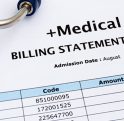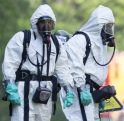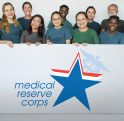Know the Health Impacts of Sexually Transmitted Diseases During STD Awareness Month
Posted April 4, 2018 by Michael Hokanson
Know Your Status. Get Tested.
Nearly 20 million new sexually transmitted infections (STIs) occur in the United States every year costing the national healthcare system nearly $16 billion in direct medical costs alone, according to the Centers for Disease Control and Prevention (CDC). April is recognized as Sexually Transmitted Disease (STD) Awareness Month to remind everyone of the importance of education and prevention in the fight against STDs.
CDC’s most recent STD surveillance shows that cases of gonorrhea, chlamydia and syphilis are at an all-time high. Many people who are infected are unaware of it because many STDs have no symptoms. Without proper treatment, STDs can lead to an inability to get pregnant, pregnancy complications, long-term pain and an increased risk of getting HIV.
As the rates of infection continue to grow, America’s youth shoulder a substantial burden of these infections. CDC estimates that half of all new STDs in the country occur among young men and women aged 15 to 24. In 2016, North Central Health District (NCHD) reported 116 cases of syphilis, 1,237 cases of gonorrhea and 3,819 cases of chlamydia. The high incidence of STIs in the general population suggests that many Americans are at risk of exposure to STDs, highlighting the need for education and prevention.
“We’re always looking for ways to work with schools, organizations and members of the community to educate residents of our district about protecting themselves against STDs,” said NCHD epidemiologist Amber Erickson. “We want to empower people by giving them the right tools to make good decisions and avoid behavior that increases the risk of STD infection.”
Despite the increasing number of new infections, there are effective ways to prevent, diagnose and treat STDs. STD screening and early diagnoses are essential in preventing transmission and the long-term health consequences of STDs. All 13 NCHD county health departments provide education and offer STD testing and treatment, and can link clients to additional services, healthcare providers and counseling. All health department services are completely confidential and are provided at low to no cost.
While county health departments can provide STD prevention education and services, there are steps everyone can take to reduce the risk of infection. Abstaining from sex, reducing the number of sexual partners and practicing consistent and correct condom use are all effective strategies to lower an individual’s risk. Safe and effective vaccines are available to prevent hepatitis B and some types of the human papillomavirus (HPV) that cause disease and forms of cancer. Anyone who is sexually active–especially young people–should schedule regular STD screenings. Early detection and prompt treatment are critical to protect a person’s health and prevent transmission to others.
“The only reliable way to know if you have an STD is to get tested,” said Erickson. “A positive STD test isn’t the end. We can treat STDs and even cure some, but the first step is getting tested.”
For more information about STDs, visit cdc.gov/std. To learn more about STD services at NCHD county health departments, visit NCHD52.org/std.
Follow us on Facebook, Twitter and Instagram to receive news, emergency messages and health information!


 Contact Us
Contact Us Locations
Locations Job Openings at North Central Health District
Job Openings at North Central Health District Internships
Internships Board of Health
Board of Health Cost and Insurance
Cost and Insurance Privacy Policy
Privacy Policy Teens & Adults
Teens & Adults For Children
For Children Other Programs
Other Programs County Environmental Health Offices
County Environmental Health Offices Chemical Hazards
Chemical Hazards Tourist Accommodations
Tourist Accommodations Food Service
Food Service Rabies Control
Rabies Control Lead Poisoning Prevention
Lead Poisoning Prevention Body Art
Body Art Land Use
Land Use Swimming Pool Program
Swimming Pool Program Water Testing for Private Wells
Water Testing for Private Wells Environmental Health Complaints
Environmental Health Complaints Georgia Food Recall Alerts
Georgia Food Recall Alerts Personal & Family Preparedness
Personal & Family Preparedness Emergency Preparedness for Functional & Access Needs
Emergency Preparedness for Functional & Access Needs Severe Weather Preparedness
Severe Weather Preparedness Emergency Preparedness Training
Emergency Preparedness Training Medical Reserve Corps
Medical Reserve Corps Regional Healthcare Coalitions
Regional Healthcare Coalitions Strategic National Stockpile/Medical Countermeasures
Strategic National Stockpile/Medical Countermeasures